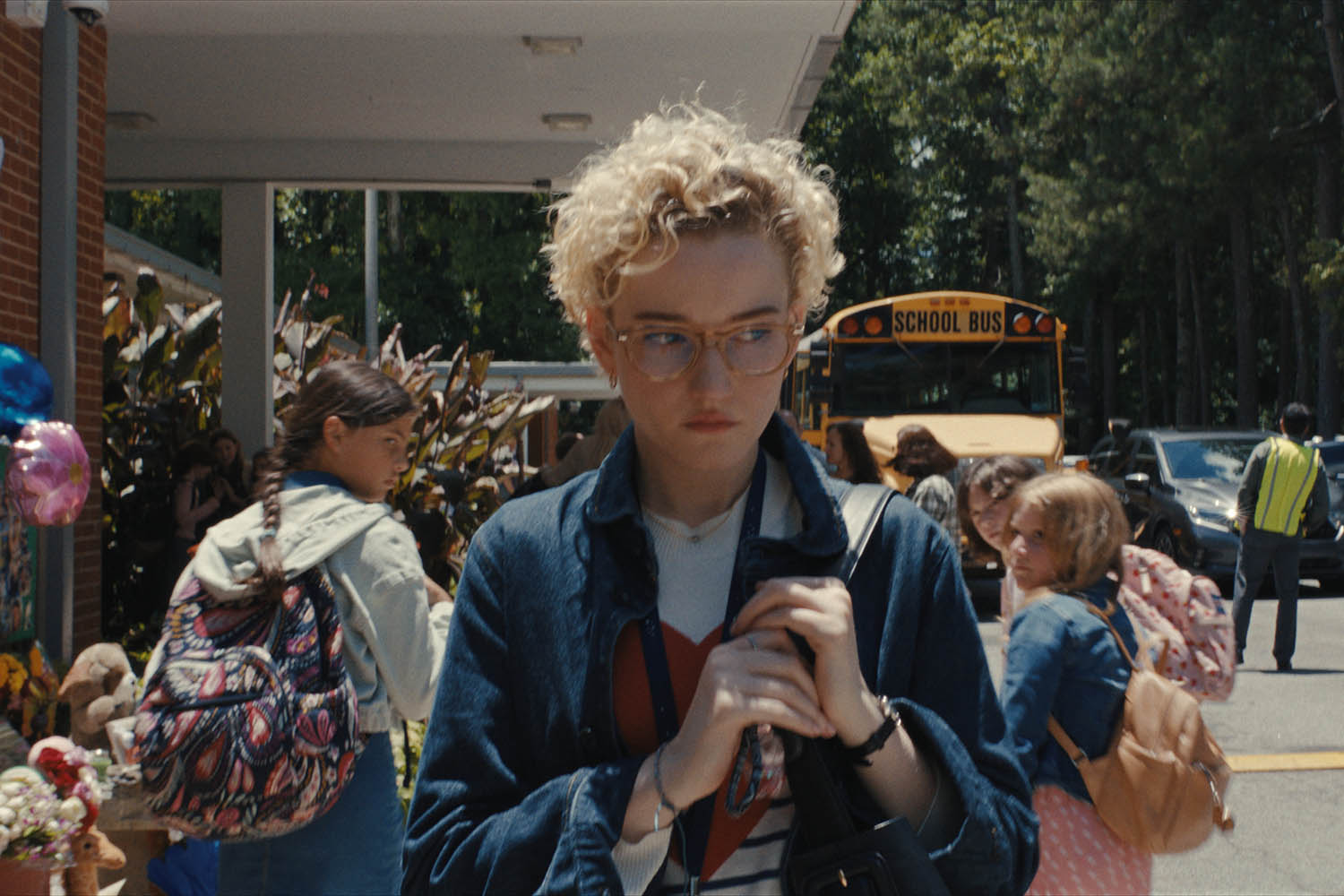Weapons begins with a promise, made with unnerving nonchalance by its doubly unnerving narrator, an unidentified girl of elementary school age. “A lot of people die in a lot of really weird ways in this story,” she says, without so much as a spoiler alert.
Not that anyone who saw director Zach Cregger’s last film, Barbarian, should require one: a low-budget, high-impact horror with a witty, healthy sense of the grotesque, it gouged out eyes, split open skulls and generally renewed our collective fear of the basement stairs in any given house. Three years on, Weapons runs nearly half an hour longer than its predecessor and boasts nearly 10 times the budget. We steel ourselves, expecting a lot more gore for our money.
Yet as Cregger patiently lays out his story in the first half, deftly skipping between perspectives and timelines, it’s easy to forget the young narrator’s warning. Or part of it, at least. There’s little death on screen, but there’s weirdness aplenty.
At precisely 2:17am one night in a leafy middle-class Pennsylvania suburb, 17 children from the same class at school rise from their respective beds, open their respective front doors and run purposefully into the darkness, leaving behind no clue as to where they’re all headed.
It’s an unbeatably eerie scene, served up with the bare minimum of exposition or explanation: Cregger’s storytelling at this point recalls the macabre sangfroid of Grimm brothers’ fairytales rather than any more obvious, excitable horror influences. Are you sitting uncomfortably? Then he’ll begin.
The next morning, only pale, timid Alex (Cary Christopher) shows up to greet his baffled teacher Justine (Julia Garner) at school. He claims to know nothing of what happened to his 17 classmates; so does Justine, though the apoplectic parents of the disappeared are less inclined to believe her.
Cregger’s storytelling recalls the sangfroid of a Grimm brothers’ fairytale. Are you sitting uncomfortably? Then he’ll begin
Cregger’s storytelling recalls the sangfroid of a Grimm brothers’ fairytale. Are you sitting uncomfortably? Then he’ll begin
For a while, what is most frightening about Weapons is not anything uncanny, but the frank, ugly depiction of US blame culture, as the fragile Justine is berated at a school meeting and terrorised at home. The single word “witch” is splashed on her car in red paint; suffice to say that if her tormentors were looking in the right place, Weapons would be a simpler and less interesting affair.
Revealing much more risks impinging on the film’s elegantly folded system of questions and answers, assumptions and reversals, sudden jolts and sinuous chills.
Our guiding point of view shifts from that of Justine to those of frantic, conspiracy-minded dad Archer (Josh Brolin), dejected police officer Paul (Alden Ehrenreich), put-upon headmaster Andrew (Benedict Wong), and others besides.
No character or actor here is wasted: the leading players acquit themselves with tense precision, but the standout turns come from Austin Abrams, funny and a bit heartbreaking as a homeless addict stalking the suburb’s fringes, and veteran Amy Madigan, an increasingly caustic scream as Alex’s visiting maiden aunt.
Newsletters
Choose the newsletters you want to receive
View more
For information about how The Observer protects your data, read our Privacy Policy
Each chapter eventually solves the agonising cliffhanger that precedes it, before dropping us even more precariously into the void. Cregger scatters breadcrumbs generously along his darkly wooded, nettled narrative path, but even as we gradually latch on to what Weapons is doing – the title is at once a vivid metaphor and a portentous red herring – there’s nothing to prepare us for how wickedly it does it.
Barbarian established Cregger as a film-maker with a brutally confident command of sensation, and he doubles down on that gift in this more expansive, expensive film. Even the easiest jump scares here are stark, burning themselves into the memory. Other images of violence and degradation unveil themselves more slowly, while the sound design and score – partly composed by the director himself – assault us with rattling, unplaceable aural bullets.
But Cregger has deepened as a storyteller too: his sense of wild, garish comedy may be undimmed, but there’s anxious emotional ballast even to the script’s subplots and sidetracks, building up to a portrait of a community that was turning uncivil long before its children vanished into the night.
Photograph by Warner Bros

